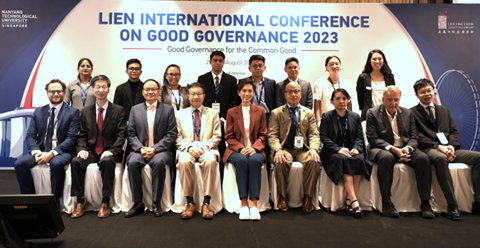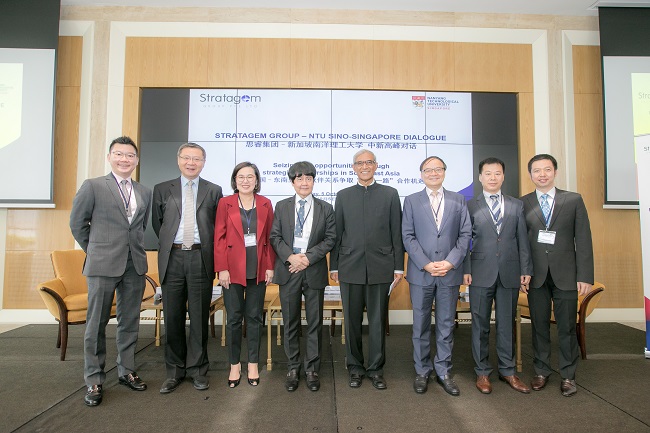
The Sino-Singapore Dialogue speakers and hosts from NTU, NCPA and Stratagem Group.
Left to right: Mr Adrian Phua (Managing Director, Stratagem Group), Professor Zhang Weiwei (Director of China Institute, Fudan University), Mrs Vilawan Mangklatanakul (Director-General, International Economic Affairs Department, Ministry of Foreign Affairs of Thailand), Mr Goh Yong Siang (Chairman, Stratagem Group), Mr Zainul Abidin Rasheed (former Senior Minister of State for Foreign Affairs, Ministry of Foreign Affairs, Singapore), Professor Liu Hong (Director, Nanyang Centre for Public Administration, and Chair, School of Social Sciences, Nanyang Technological University, Singapore), Professor Wang Yuzhu (Senior Research Fellow, National Institute of International Strategy of China) and Mr Kyatmaja Lookman (President Director, PT. Lookman Djaja Land)
With Singapore and China's Memorandum of Understanding (MOU) on Third-party Market Cooperation to promote greater collaboration between Singapore and Chinese companies in third-party markets along the Belt and Road, businesses are keen to find out how they can better navigate and seize BRI opportunities through strategic partnerships in South East Asia. Singapore's dual role as ASEAN Chair and country coordinator for ASEAN-China relations also provides a fitting stage to further the dialogue on cooperation in the region.
In the sixth Sino-Singapore Dialogue held on 05 October 2018, Stratagem Group partnered with Nanyang Technological University, Singapore (NTU Singapore)'s Nanyang Centre for Public Administration (NCPA) to hold a thought-provoking dialogue themed "Seizing BRI opportunities through strategic partnerships in Southeast Asia". Featuring speakers from China, Indonesia, Singapore and Thailand, these speakers share their perspectives on how businesses can leverage strategic partnerships to seize BRI opportunities along the Silk Road.
With BRI's aim to promote flows of people, goods, capital and ideas between Asia, Africa and Europe through infrastructural investment, unimpeded trade, policy coordination, and people-to-people ties; establishing strong economic connectivity and people to people ties between China and ASEAN is critical to the success of BRI, Professor Liu Hong, Director, NCPA, NTU said in his opening address for the dialogue.
Learning from the successes and challenges of Sino-Singapore projects like the Suzhou Industrial Park, Chongqing Connectivity Initiative and Guangzhou Knowledge City, Mr Zainul Abidin Rasheed, former Senior Minister of State for Foreign Affairs, Ministry of Foreign Affairs, Singapore, concluded that Singapore could continue to value-add through forming the right alliances with other countries to make China's Belt and Road Initiative more relevant to the world.
Contrasting the fundamental differences between Western and China's approach to globalisation, Professor Zhang Weiwei, Director of China Institute of Fudan University, explained that China's current approach to globalisation is heavily people-centred and will create a beneficial situation for all parties involved unlike the Western's approach that eventually result in a zero-sum game. This is demonstrated clearly in China's Belt and Road Initiative where it strives to bring economy advantages to all countries involved.
Professor Wang Yuzhu, Senior Research Fellow of National Institute of International Strategy of China, reiterated the same view that China's Belt and Road Initiative is to create a mutually dependent and beneficial economy with ASEAN and other regions built on mutual trust and integration.
In ASEAN, many countries like Singapore, Thailand and Indonesia are actively pursuing economic opportunities along China's Belt and Road Initiative too.
With Thailand's commitment to further promote economic integration with China's Belt and Road Initiative, Mrs Vilawan Mangklatanakul, Director-General of International Economic Affairs Department of Ministry of Foreign Affairs of Thailand, shared the importance of how law and policies could act as an enabler to sustain strategic cooperation based on transparency, stability and predictability.
Presenting the logistical and transportation challenges in Indonesia, Mr Kyatmaja Lookman, President Director of PT. Lookman Djaja Land, shared opportunities on cross-border logistics that international companies can tap on to ride on the wave of the Belt and Road Initiative.
In his closing speech, Mr Adrian Phua, Managing Director of Stratagem Group said that the BRI is an enormous project that China cannot accomplish by itself despite China's vast capacity and resources as the world's second-largest economy. China has set the wheels for BRI in motion for a long-term economic growth in ASEAN and the wider region to present vast opportunities for countries in different stages of development.
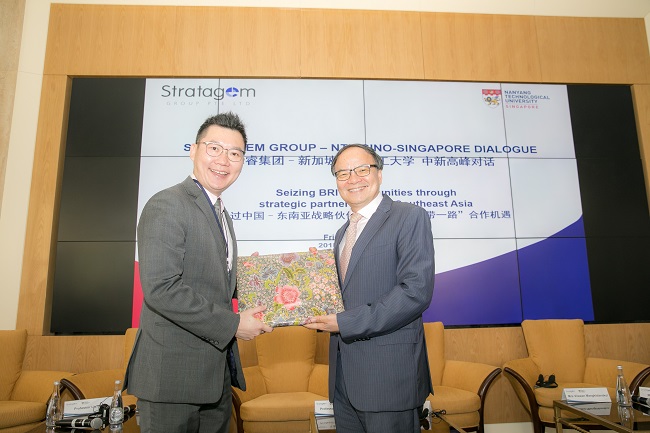

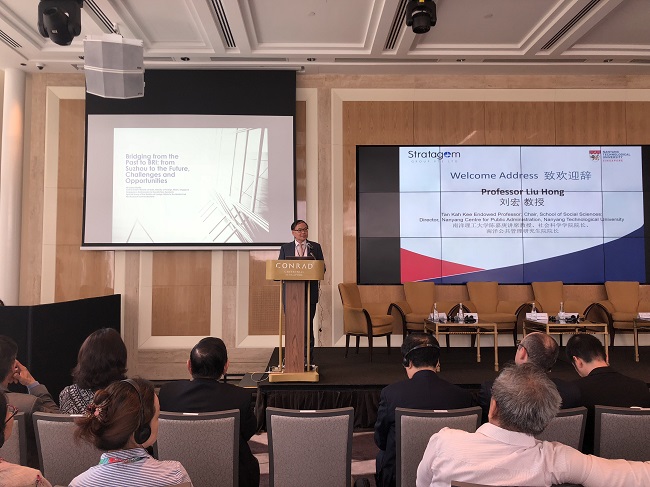
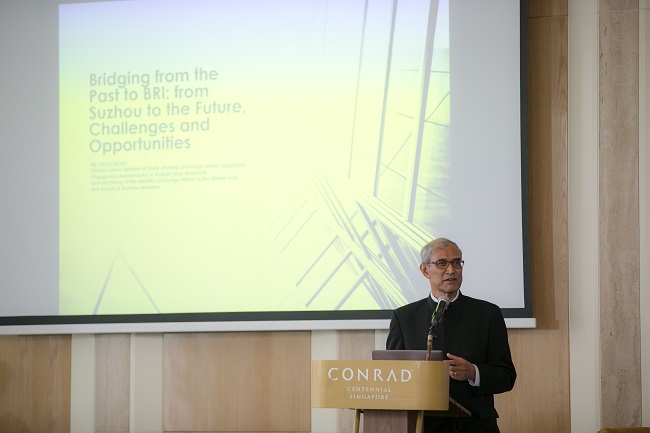
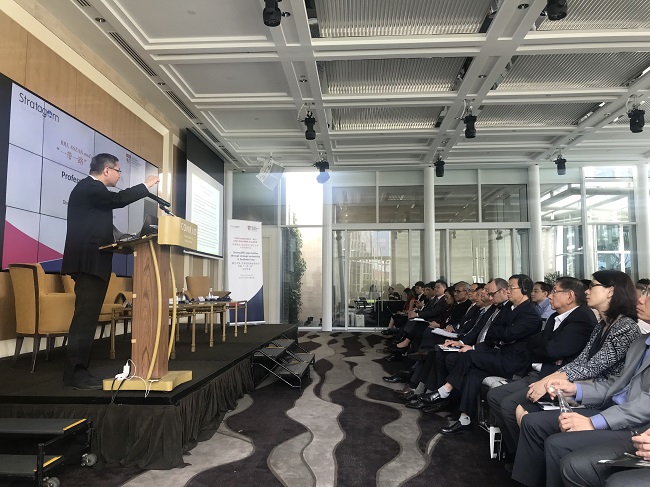
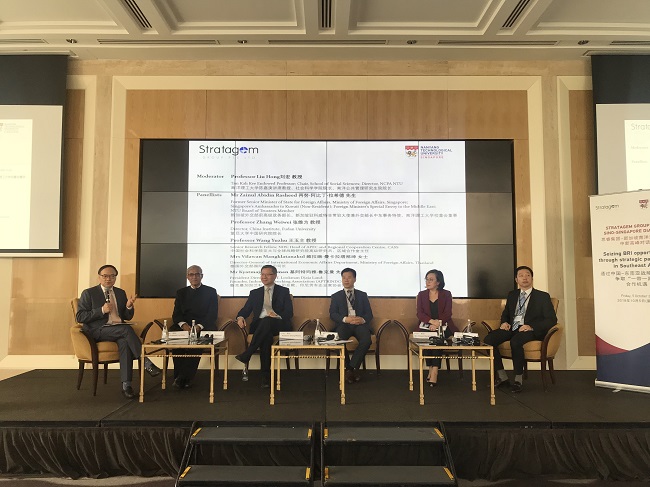















/enri-thumbnails/careeropportunities1f0caf1c-a12d-479c-be7c-3c04e085c617.tmb-mega-menu.jpg?Culture=en&sfvrsn=d7261e3b_1)

/cradle-thumbnails/research-capabilities1516d0ba63aa44f0b4ee77a8c05263b2.tmb-mega-menu.jpg?Culture=en&sfvrsn=1bc94f8_1)

7e6fdc03-9018-4d08-9a98-8a21acbc37ba.tmb-mega-menu.jpg?Culture=en&sfvrsn=7deaf618_1)

